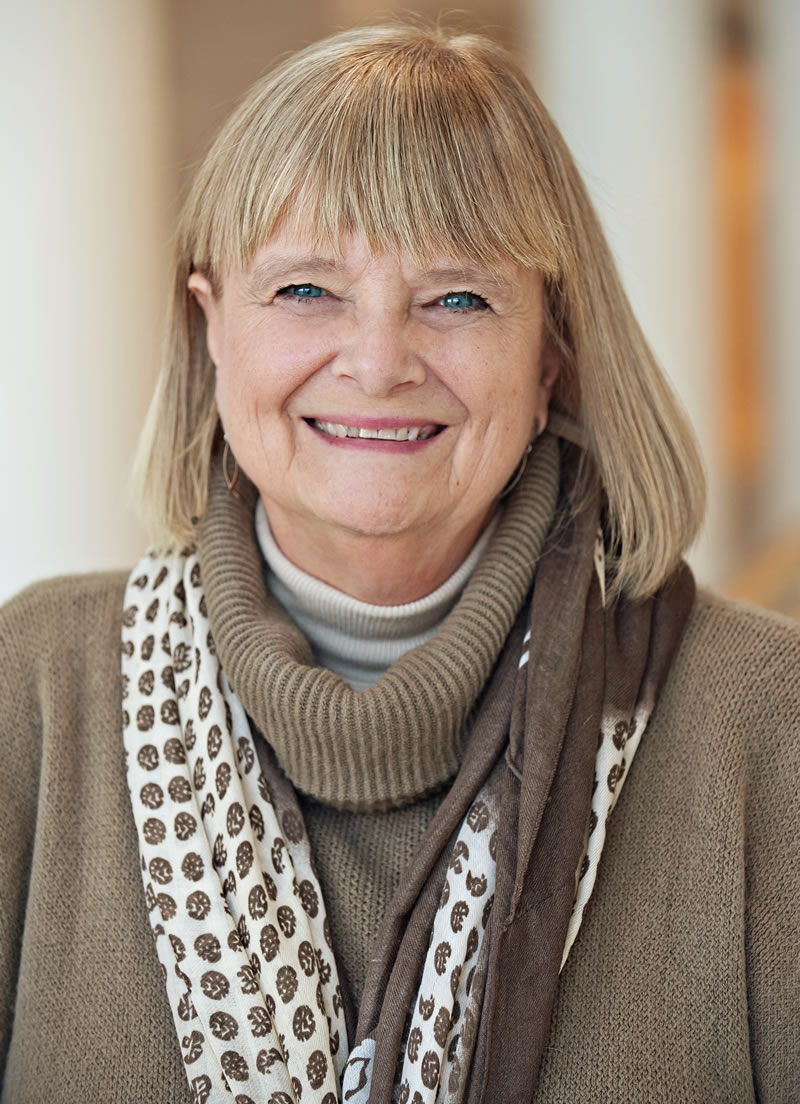Carolyn Bruzdzinski, Ph.D.

Carolyn Bruzdzinski, Ph.D., is retired from a career in academic medical research and leadership roles at the American Cancer Society.
She earned her M.S. and Ph.D. in human genetics from the University of Michigan. She continued at U-M as a post-doctoral fellow before she joined the University of Illinois at Chicago as a faculty member, where her research focused on key aspects of growth and metastasis in cancer.
In 2002, she joined the American Cancer Society as the scientific program director, directing the external grant programs in genetic mechanisms in cancer and development differentiation and cancer, before serving as the chief mission delivery officer for the California division of the American Cancer Society for six years.
Most recently, she served as the vice president of Cancer Control for the American Cancer Society North Central Region, serving communities in Illinois, Indiana, Kentucky, Michigan, Ohio, Tennessee and West Virginia. Her team worked within health care systems to increase utilization of cancer prevention strategies and cancer screening tests; to reduce barriers to care for cancer patients; and to engage health care organizations in fighting cancer through the organization’s advocacy, corporate, community and fundraising initiatives. She was responsible for the promotion of the American Cancer Society’s nationally recognized research program and the engagement of researchers.
Carolyn resides in her native Chicago and remains an active volunteer for the American Cancer Society and other organizations that serve the public good. She also enjoys travelling and spending time with her family.
Describe your interest in the Rogel Cancer Center. What drew you to being on the National Advisory Board?
My scientific training is in human genetics, but I really focused on metastasis and invasion in cancer. I am very familiar with the quality of the science and the work happening here at U-M. Working with the American Cancer Society, I have also engaged with the institution professionally; and as a graduate of U-M, my family will tell you I bleed maize and blue!
It is a great opportunity to see what we can do as a board to expand both the work being done as well as the resources and influence in the community, region, and country.
What are your hopes for what the Rogel Cancer Center can accomplish in the next decade?
The wealth of different science that is going on at U-M, the fact that there are so many disciplines working together here to move ideas forward quickly, is incredibly exciting. The synergy of that research promises incredible new discoveries and development of new treatment modalities moving forward -- and really speaks to what we can accomplish in the future.
The Rogel Cancer Center is already a leading institution, ranked highly in so many different categories, but I believe we can push it and make it even better. We all know about its excellence, but we need to ensure that more people truly understand the value of what is going on here.
How do you envision the National Advisory Board contributing to that success?
The National Advisory Board brings together many different skills, backgrounds, and understandings of what could help the cancer center move forward -- from marketing experts and leading philanthropists to individuals out in community. I believe this group can reflect on what we see as gaps in the cancer landscape out there and the opportunities that the Rogel Cancer Center has to address those gaps.
The whole concept of growing a research funding base is critically important, and these are times when it is a real issue given the tenuous funding climate at the National Institutes of Health level. We have to do whatever we can together to ensure that research funding continues to be made available. It is great to hear innovative thinking to find funding, and we have to think about that as well.
The conversations we’ve had, the thoughtful consideration of many different aspects and opportunities within the cancer center, and the dedication everyone has is very encouraging.
Would you like to comment about any aspect of the Rogel Cancer Center that makes you particularly happy to partner with the faculty and leadership?
While at the American Cancer Society, I had the pleasure of partnering with U-M on a number of fronts, including peer-reviewed research via American Cancer Society funding. I witnessed firsthand the incredible potential of U-M’s young scientists -- and the opportunities available to them. I was particularly impressed with the interdisciplinary aspect of research being tackled across campus -- that scientists can go down the hallway to find an expert in a new technology or a new technique, and collaborate with them. The American Cancer Society has also worked with the cancer center in terms of patient care. I know U-M has a huge commitment to quality cancer care for patients, and I have really seen how the institution has grown, developed and participated in many different programs that advance that quality of care.
I am inspired by the cancer center’s commitment around access to quality care as well, because it is really important. Obviously, care is expensive, whether you are talking early detection, diagnosis or treatment, and the ability to provide access to such care and screening modalities, independent of what your particular economic situation is, is one of the biggest challenges we have today.
Finally, beyond research and quality of care, there is also community outreach. Increasing the education to the public around the importance of prevention and early detection has long been an interest of mine. That said, I am excited to partner in helping the Rogel Cancer Center be seen more visibly in the community, which will ultimately break down barriers for coming here for care.
